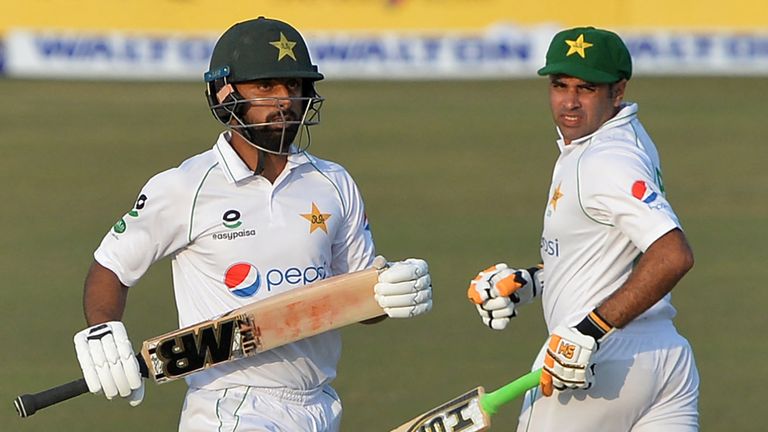While the surface in play for the first Test has received a “below average” rating from ICC, Pakistan’s opening batter Imam Ul Haq decided not to get drawn into the debates surrounding the benign track in Rawalpindi and defended the hosts’ right to play to “our strength”.
In a dull draw, only 14 wickets fell with over 1100 runs scored across three innings of the Test match. While the quicks found no pace and bounce to work with, spinners failed to extract any sharp turn even deep into the game. Low bounce was the only factor that held the batters’ horses during certain passages. Otherwise, it was a case of bat dominating the ball by a very big margin.
Imam was perhaps the biggest beneficiary of the same. He scored his maiden Test hundred on Day 1 in his first home Test and backed that up with another century in the final hours of the drawn fixture. He contributed scores of 157 and 111* in Pakistan’s 476/4 dec and 252/0, respectively, with Australia making 459 of their own in between.
The surface used in Rawalpindi drew flak from all corners, but Imam threw the Pakistani perspective into the mix, saying they only tried to play to their advantage rather than the visitors’. He brushed aside the debate, adding that when Pakistan travel to Australia, nobody prepares the track in consultation with the tourists.
“A draw is something nobody wants to see. Obviously when it’s a five-day Test everyone anticipates for a result. But when we go to Australian conditions, they don’t make pitches consulting us but make it according to their will so I think we should see our strength and should live up to our strength,”
Imam was quoted as saying by ESPNcricinfo.
Opposition captain Pat Cummins said the surface in Rawalpindi was a lifeless one, designed with the specific intention of keeping him and his fellow Aussie quicks out of the contest. Pakistan Cricket Board chairman Ramiz Raza also agreed that the curator in Rawalpindi probably took it to extremes in terms of upholding Pakistan’s interests.

Ramiz indicated that the home think-tank was also wary of missing their first-choice seamer Hasan Ali and were unsure of how their new opener Abdullah Shafique would go. He hinted, however, that the tracks for the next two Tests in Karachi and Lahore will be more bowler-friendly as the home team looks to assert dominance.
Imam spoke with the same tone, saying they are eyeing a result in Karachi in Pakistan’ favour. He stuck to the Rawalpindi Test for a moment, though, and highlighted the overs lost due to bad light. While Pakistan didn’t declare at any stage on the final day, Imam said if they had enough time, they would’ve put Australia in again.
“In Karachi, we are looking for a result in our favour. I think the Rawalpindi Test was played well as we managed to get all 10 wickets. Unfortunately 70 overs were not played out due to bad light and rain but had those overs been bowled the result could have been different because we intended to make them bat again,”
he added.
The draw in Rawalpindi Test also meant that two teams shared four points apiece in the new cycle of the World Test Championship where, given the fixture design, Pakistan are considered massive favourites to make the tournament final to be held in the summer of 2023.
The next Test in Karachi kickstarts from March 12, with the last one for the series scheduled in Lahore from March 21.


